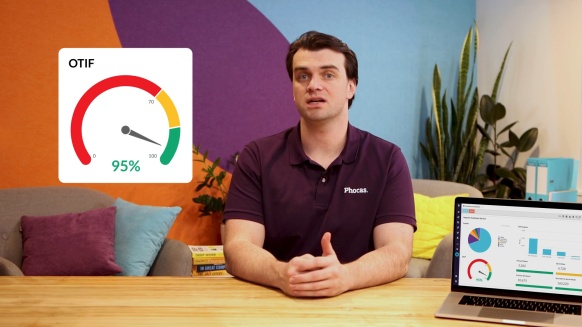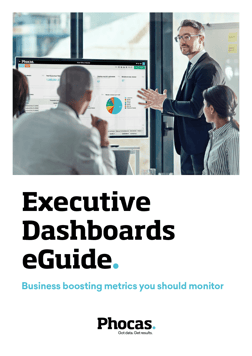Five benefits of business intelligence reporting

In a digital world, the ability to collect and consolidate pertinent business data from multiple sources, run ad hoc queries and build custom reports is the key to informed decision-making. As business people become more data-driven, the benefits of effective reporting are having a greater impact on financial performance. Rather than wait for IT generated reports, business intelligence (BI) reporting presents information in real-time, and in a way that is digestible to end users. The valuable insights mean all business people have the information they need to make business decisions on the fly.
In this post, we’ll discuss five key benefits of reporting using a business intelligence platform.
1: Business intelligence reporting can be used in any industry or department
From manufacturer, to distributor, or retail industries, to the warehouse, finance, or sales department, BI reporting can be customized to meet your needs. For instance, production managers on the shop floor can use the built-in templates to track cycle time, time to make changeover and throughput per hour, shift or day.
Finance teams can also use the reporting system for both financial reporting and management reporting. All departments have the valuable insights they need to track financial and operational business performance. Sales teams can monitor group and individual key performance indicators and determine whether they are reaching objectives and marketing campaigns are attracting the right leads. Whatever your industry or department, BI reporting can provide the types of reports you need using real-time data.
2: Business intelligence reporting takes care of data integration
In a recent Chartered Accountants ANZ technology survey, respondents who automated data integration between reporting systems or are using all-in-one BI and FPA platform are spending less time on manual data handling.
Reporting tools that can incorporate data from all departments and handle the automation and validation of data sources free up finance and IT teams time to do more high-value tasks. When all of your business operations have access to real-time data analytics and reports there is less reliance on excel and a greater data-driven culture.
3: Business intelligence reporting has built-in data visualization
Data visualization is another key benefit of business intelligence reporting. The powerful reporting process transforms complex data sets into easily understandable visual formats such as charts, graphs, and dashboards.
These visual representations make variances, trends, and outliers more apparent, allowing decision-makers to quickly grasp key insights without the time-consuming need to look at walls of data in spreadsheets. This clarity is crucial for identifying areas that need attention, spotting opportunities, and making data-driven decisions.
Dashboards can be customized based on the exact needs, goals, and preferences of each user. All users can create, analyze, and run reports at any time, from any device, without the help of IT. This on demand and automated reporting give users the insights they need to work with confidence. Users can create alerts on the specific key performance indicators (KPIs) they want to track. If inventory falls below a certain number, for example, an email alert will be sent, ensuring you are always informed and the situation assessed.
4: Business intelligence reporting helps increase workflow speed
When the market shifts or your company confronts an obstacle, BI reporting provides the information you need for forecasting and changing tact. You don’t need to wait for a comprehensive report from experienced data analysts, the data automation allows you to review interactive dashboards and determine a new pricing structure or different terms.
With BI reporting, your data is consolidated into a centralized data source for instant, accurate analysis. Even non-technical users can generate reports on the spot, dramatically increasing workflow speed.
5: Business intelligence reporting gives you confidence in decision-making
Executives and managers must make strategic decisions that can have a significant impact on the company. Many executives still rely on hard-won experience and gut instinct to make important decisions. However, BI reporting eliminates the need to depend on intuition alone. Whether you are trying to streamline your warehouse, create a targeted marketing campaign, or optimize costs, BI reporting enables stakeholders to quickly make business decisions because they can comprehend the metrics and act on the facts.
This accessibility to custom reports and dashboards promotes faster consensus and more confident decision-making processes across your company.
This new data-driven business world can be embraced with the right BI solution in place, you can view critical company information in just a few clicks.
Now that you have more insights into the benefits of BI reporting , why not have a closer look at the specific dashboards and scorecards you should be tracking in this free Executive Dashboards ebook.

Katrina is a professional writer with a decade of experience in business and tech. She explains how data can work for business people and finance teams without all the tech jargon.

Essential KPIs every distribution company executive should measure
For mid-market leaders running a wholesale distribution business, data and business intelligence technology are crucial for monitoring financial and operational performance. However, the real value lies in how your team uses the data insights to influence decision-making.
Read more
Project cost management
Managing project costs can often feel like an uphill battle. Unexpected expenses, budget overruns and lack of financial visibility are common issues that can derail even the most well-planned projects. These challenges not only cause stress but also jeopardize the project's success and client satisfaction.
Read more
The wide appeal of self-service reporting
Your own data is a critical asset that can drive business growth, improve decision-making, and boost customer satisfaction. Among the various tools available, self-service reporting solves one of the most significant barriers to real-time data analysis—accessibility.
Read more
What is management accounting and how does it help with operational decision-making?
People in business are always looking for new ways to leverage their data, streamline their operations and work more efficiently. There are many ways to do this, but one of the most powerful is management accounting—a concept that has been around for decades but has had a resurgence thanks to the increasing sophistication of modern data platforms.
Read more
Find out how our platform gives you the visibility you need to get more done.
Get your demo today
